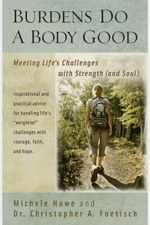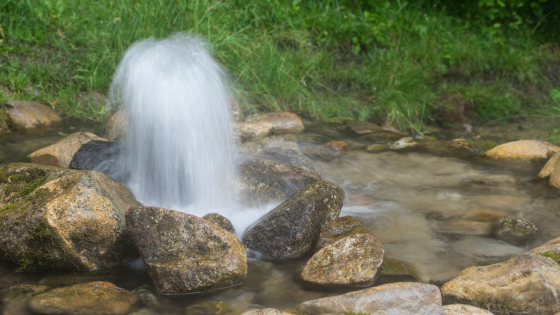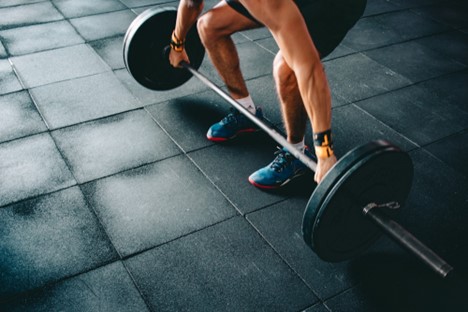When I was young, I admired clever people. Now that I am old, I admire kind people. – Abraham Joshua Heschel
For too long, retirement has been viewed as "my time," but statistics now show that those retirees who do in fact, "retire" from (or better said “stop”) using those skills and abilities they honed and developed over the years in work, recreation, knowledge and spiritual living suffer from a myriad of self-imposed ills. Being kind and helping others doesn’t end when you become older. In fact for the senior who recognizes his or her position in life from God’s perspective the performance standards could be the most demanding ever.
THE BENEFITS OF EXTENDING KINDNESS AS A SENIOR
Offering acts or words of kindness is healthful, there's no question about it. Certainly there is the biblical injunction that it is more blessed to give than receive. It is simply inhumane to observe another person struggling without offering some form of aid or relief. There is also the internal physiological reward of having done a good deed that makes a person want to affect a repeat performance. This feel-good emotion has been dubbed a "helper's high" by Allan Luks author of The Healing Power Of Doing Good. This sudden release of endorphins is comparable to a runner's high. It is characterized by experiencing an initial rush of euphoria followed by an inner calm that enhances and stabilizes emotional well-being long after the deed is done. Sounds good and it is.
According to the Random Acts of Kindness Foundation, there are many more physiological factors that occur after a person performs a kind act. It doesn’t matter if you're male or female or if you even know the person you are helping (most individuals don't). Increased frequency of volunteerism brings about higher and longer lasting health benefits. So adopting an altruistic lifestyle and extending yourself on behalf of another is a no-lose venture. Men and women alike can expect to experience more emotional resilience while reducing negativity and hostility. They may likewise discover that their good deeds will lower their incidences of headaches, backaches, depression, colds/flu and arthritic problems.
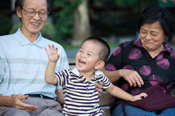 Luks believes that there is a correlation between these benefits and a person's outlook on life in general. If you believe you make a difference then your internal framework responds toward that inclination. Luks' studies have shown that do-gooders enjoy a stronger immune system and have a decrease in intensity/awareness of physical pain. Their positive emotions are "activated" while negative ones diminish and bodily stress is relieved. Perhaps one of the strongest statements for doing acts of kindness into one's every day existence is that, "the health benefits and sense of well-being return for hours or even days whenever the act is remembered." In other words, the good stuff trails in your wake and becomes the impetus for even more genuine acts of kindness.
Luks believes that there is a correlation between these benefits and a person's outlook on life in general. If you believe you make a difference then your internal framework responds toward that inclination. Luks' studies have shown that do-gooders enjoy a stronger immune system and have a decrease in intensity/awareness of physical pain. Their positive emotions are "activated" while negative ones diminish and bodily stress is relieved. Perhaps one of the strongest statements for doing acts of kindness into one's every day existence is that, "the health benefits and sense of well-being return for hours or even days whenever the act is remembered." In other words, the good stuff trails in your wake and becomes the impetus for even more genuine acts of kindness.
Everyone gains when seniors kindheartedly opt back into active service and continue to use their abilities to benefit others.
SERVE GOD AND EXERCISE KINDNESS AS A SENIOR
How will a life change (yours and others) if you adopted the "always on call" outlook? Every time you step out the door, log online, answer the phone or talk with anyone, aim to see the needs and opportunities and then serve God through your kind demonstration of being involved. Don’t be content with simply observing the surface-y stuff. Instead, really see into the deepest needs of the person in front of you. Begin serving kindly and meet those needs.
It means, of course, coming out of retirement for good. No matter how young or old we are, we never rest from our obligations to serve those around us. Never. Ever. As long as we have breath, we have a responsibility to use the gifts we've been given to better someone else's life. Don’t give into the "my time" retirement mentality. Instead look below for some everyday ways you can step out of retirement today and back into life.
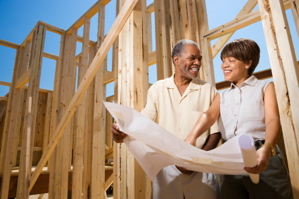 PLANNED ACTION – Keep your eyes open to the needs and dispositions of others. Make it a discipline to ask yourself how you might lighten the burdens of a person so they in turn can have a positive impact on others. Then plan a strategy and execute it. One senior man, sold his home and now travels in an RV to use his construction knowledge and work with churches around the country that do building projects. It is a great way for him to maintain his physical fitness and truly impact others in a very tangible way. He identified a need and became a solution.
PLANNED ACTION – Keep your eyes open to the needs and dispositions of others. Make it a discipline to ask yourself how you might lighten the burdens of a person so they in turn can have a positive impact on others. Then plan a strategy and execute it. One senior man, sold his home and now travels in an RV to use his construction knowledge and work with churches around the country that do building projects. It is a great way for him to maintain his physical fitness and truly impact others in a very tangible way. He identified a need and became a solution.
 HEAR THEN SPEAK – Listen to what someone is telling you, beyond the scope of what they verbalize. Develop a more keen sensitivity as you engage others in conversation. Keep asking yourself, what the emotion is behind the catch phrases? What is the real need of this person's heart today? One woman chose to use her senior years to basically provide a listening ear, compassion and often an exhortation or challenge to younger people who need wise counsel. She put her years of life experiences to practical use. She often talks with people as she prepares a healthy meal with them, while taking a walk or evening doing gardening with them.
HEAR THEN SPEAK – Listen to what someone is telling you, beyond the scope of what they verbalize. Develop a more keen sensitivity as you engage others in conversation. Keep asking yourself, what the emotion is behind the catch phrases? What is the real need of this person's heart today? One woman chose to use her senior years to basically provide a listening ear, compassion and often an exhortation or challenge to younger people who need wise counsel. She put her years of life experiences to practical use. She often talks with people as she prepares a healthy meal with them, while taking a walk or evening doing gardening with them.
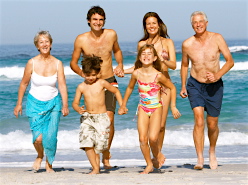 CARRY ON A LEGACY AND INVEST TIME – Remember and reflect on those moments when someone extended kindness in your direction. If you get stuck trying to figure out practical ways to make a difference, go no further than your own experience of being on the receiving end of another's goodwill. Remember and repeat. And repeat some more. By doing this you carry on a legacy of kindness. Be willing to extend yourself, even if it means setting aside your agenda. Don’t get into a scheduling rut and not budge. Don’t let things like the television guide govern your schedule. One senior couple shares their passion for travel and active outdoor living by inviting and paying for those who otherwise couldn’t afford it to travel with them. As children they first traveled when someone gave them the opportunity.
CARRY ON A LEGACY AND INVEST TIME – Remember and reflect on those moments when someone extended kindness in your direction. If you get stuck trying to figure out practical ways to make a difference, go no further than your own experience of being on the receiving end of another's goodwill. Remember and repeat. And repeat some more. By doing this you carry on a legacy of kindness. Be willing to extend yourself, even if it means setting aside your agenda. Don’t get into a scheduling rut and not budge. Don’t let things like the television guide govern your schedule. One senior couple shares their passion for travel and active outdoor living by inviting and paying for those who otherwise couldn’t afford it to travel with them. As children they first traveled when someone gave them the opportunity.
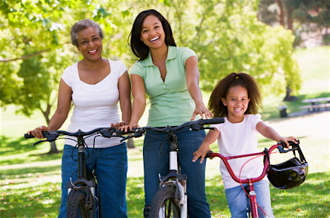
Focus on living with an other-ness lifestyle every day. Determine to come out and stay out of retirement. Seek out those opportunities for regular service-type involvement using your particular abilities to benefit others in the same measure as you did when employed. But remember, it doesn’t all have to be tangible and pragmatic business value that can be measured by traditional performance means. Living with an other-ness lifestyle means helping others to simply have fun and experience the joy of life in Christ. You’ll find that this sure isn’t the old concept of retirement – it is the ageless act of living your life for God’s purpose. If you think you had fun being active when you were younger you’ll find the benefits will be far richer now.
I was young and now I am old, yet I have never seen the righteous forsaken or their children begging bread. They are always generous and lend freely…
– A passage from the Bible book of Psalms
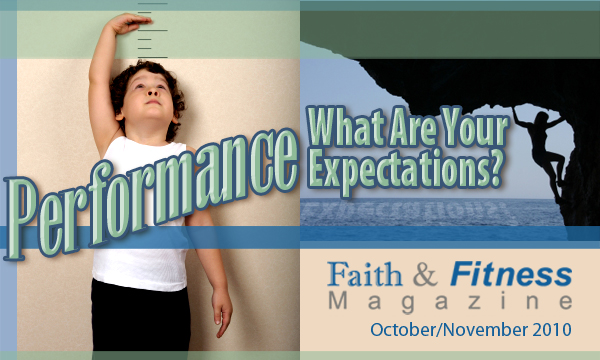 This article is from the October/November 2010 issue of Faith & Fitness Magazine, which focuses on the theme Performance – What Are Your Expectations?
This article is from the October/November 2010 issue of Faith & Fitness Magazine, which focuses on the theme Performance – What Are Your Expectations?
Share this article with others and post your Facebook comments about this article below.
